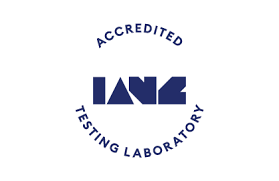Nectar Testing
Nectar Testing
Dihydroxyacetone (DHA), the precursor to methylglyoxal (MG) in honey, is produced in the nectar of mānuka flowers. The concentration of DHA in nectar varies between trees.
Analytica’s nectar test measures DHA and the main sugars (fructose and glucose) in nectar samples. Customers receive a report with concentrations of DHA and sugar in their sample. DHA results are also converted to mg/800g of sugar to rank the DHA concentrations found in different samples, at a sugar level that roughly matches that found in honey. However, while the results can be used for ranking samples, for a range of reasons the actual concentration of DHA in honey from an area may not be the same as that found in the nectar from the same area.
Click here to read our beekeeper magazine article about nectar testing.
HOW DO I GET NECTAR FROM MY TREE?
This test is for the nectar of mānuka plants. There are a variety of different methods for sampling nectar to suit the customer’s needs; nectar can be taken directly from the flower or flowers can be soaked in water to extract the nectar.
Click here to read our guide to nectar sampling.
Analytica can send out a sampling kit depending on the method chosen for nectar collection. The cost of a basic sampling kit is included in the price of the test.
HOW DOES ANALYTICA CONDUCT THE TEST?
Nectar samples are diluted and derivatised before being analysed for DHA and sugar by Ultra Performance Liquid Chromatography (UPLC) with UV detection.
ACCREDITATIONS
This method is not currently an IANZ accredited test. However it is based on the IANZ accredited Mānuka 3-in-1 test, and has been developed and validated using Analytica’s normal criteria as an ISO 17025 accredited laboratory.
PRICING AND TURNAROUND TIME
Please contact Analytica for current pricing and TATs on +64 7 974 4740 or at info-analytica@alsglobal.com








